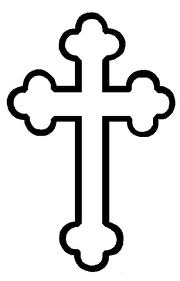An Online Orthodox Catechism adopted from ‘The Mystery of Faith’ by Bishop Hilarion Alfeyev
 ‘FATHER’ AS A DIVINE NAME
‘FATHER’ AS A DIVINE NAME
Male imagery was not therefore imposed on God, rather God Himself chose it in His revelation to humans (cf. 2 Sam.7:14; 1 Chron.17:13; Jer.3:19; 31:9). The three Persons of the Holy Trinity bear the names Father, Son and Holy Spirit, where the name Son belongs to the eternal Logos of God,Who was incarnate and became man.
In Semitic languages where the word for Spirit (Hebrew ruah, Syriac ruha) is feminine, female imagery is applied to the Holy Spirit. Both the Hebrew and the Greek terms for the Wisdom of God (Hebrew hokhma, Greek sophia) are feminine: this opens the possibility of applying female imagery to the Son of God, Who is traditionally identified with the Wisdom. With this exception, for both Father and Son exclusively male imagery is used in the Eastern tradition.
The Orthodox normally oppose modern attempts to change traditional biblical imagery by making God-language more ‘inclusive’ and referring to God as ‘mother’, and to His Son as ‘daughter’, or using the generic terms ‘parent’ and ‘child’. For the Orthodox, the full understanding of motherhood is embodied in the person of the Mother of God, whose veneration is not merely a custom or cultural phenomenon, but a church dogma and an essential part of spirituality.
It is therefore not a matter of cultural difference between the Orthodox and the Roman Catholics on the one hand, and the Protestants on the other, that the former venerate the Mother of God, while the latter pray to ‘God the Mother’.






